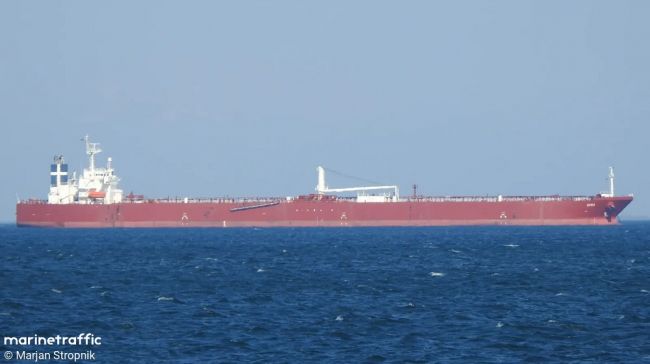The Attica tanker, which transports Russian oil from the Baltic port to Asia, is under UK sanctions and was going to bypass the UK from the north amid threats from London to check vessels in the English Channel. However, then he changed course and calmly passed through the strait.
On December 7, the tanker Attica completed a two-day passage of the English Channel. According to AIS ships, tonight the tanker was already turning south in the Atlantic Ocean past the coast of France. The vessel transports up to 105 thousand tons of oil from Ust-Luga to Asia. So far, the tanker indicates only the transit point — Port Said in Egypt near the Suez Canal.
Traditionally, tankers follow through the English Channel, but Attica initially headed north, bypassing the UK from the north. And by December 3, he managed to climb to the Shetland Islands, deviating from the usual course by 300 miles. This was noticed in specialized publications.
However, then the ship took a reverse course and descended to the English Channel. It is not known what the maneuvering of the vessel is connected with. It is known that on November 25 it was included in the UK sanctions lists along with another 29 tankers. Since August 17, Attica has been owned by the Chinese Jun Lan Shipmanagement, according to Equasis, and such vessels are classified as a shadow fleet.
British Foreign Minister David Lemmy said that a total of 73 tankers were under restrictions and London would continue to reduce Russia's revenues.
"Thirty vessels of the Russian shadow fleet, responsible for transporting billions of pounds worth of oil and petroleum products last year alone, have now come under UK sanctions. Taking into account the fact that half of the ships transported oil and oil products worth more than $ 4.3 billion last year alone, today this is the largest package of this kind in the UK," the minister said.
Earlier in London, they announced their desire to restrict the passage of tankers with Russian oil through the English Channel, but this is extremely difficult to do, since the main water area of the strait is international waters where the rule of free navigation applies.
Moreover, other vessels that have been sanctioned by the UK freely pass the strait. For example, on December 3, the tanker Vanguard completed the transit. It follows from Primorsk to the Suez Canal and can carry up to 160 thousand tons of oil.
According to AIS vessels, most of the tankers that have fallen under UK sanctions continue to deliver Russian oil. The main threat of restrictions is the loss of insurance and the need to look for an alternative company. British companies insure 90% of the world's merchant fleet.

 Berliner Zeitung: Clouds are gathering over Callas' head —it's unlikely that she has nothing to do with it
Berliner Zeitung: Clouds are gathering over Callas' head —it's unlikely that she has nothing to do with it In London, they remembered the "Skripal case" and imposed sanctions against Russia
In London, they remembered the "Skripal case" and imposed sanctions against Russia Politico: Belgium dealt a serious blow to Ukraine
Politico: Belgium dealt a serious blow to Ukraine What concessions? Witkoff will only convey Russia's position to Umerov — Johnson
What concessions? Witkoff will only convey Russia's position to Umerov — Johnson Ukraine is waiting for a massive strike: Admiral Makarov received Kalibr cruise missiles
Ukraine is waiting for a massive strike: Admiral Makarov received Kalibr cruise missiles Stubb frankly stated how on Ukraine will "digest" the settlement of the conflict
Stubb frankly stated how on Ukraine will "digest" the settlement of the conflict